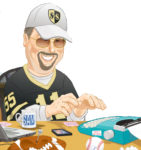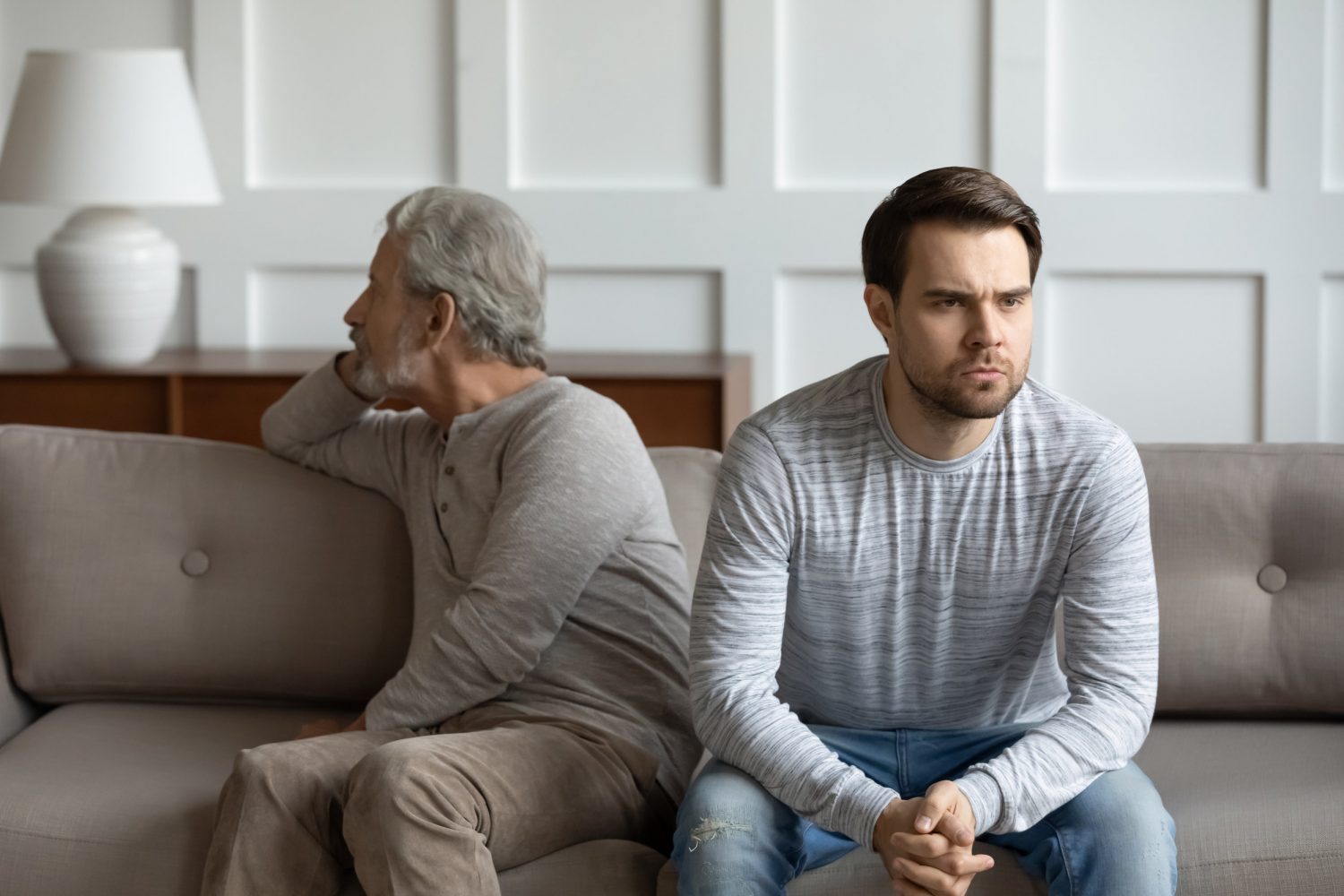When his business started to struggle in the 1980s, Evril Swinney, a husband, and a father turned to heavy alcohol drinking to forget his troubles.
After being out on a binge – sometimes for several days – he would come home mean. In front of his wife and children including his son Dabo, he’d heave lamps, punch walls, and break windows. At times his sons would hold him back from assaulting his wife.
“I saw things that kids shouldn’t see,” said Dabo Swinney in the book by Seth Davis titled Getting to Us: How Great Coaches Make Great Teams. “Police showing up at your house, running out of the house at night, knocking on neighbors’ doors, jumping in a car with your mom. It was bad. My dad would give you the shirt off his back, but when he drank it just took over and cost him everything.”
This chaotic and sad situation Dabo suffered through is one of several father and son conflicts the book conveys about the greatest coaches of sports teams.
The relationship Syracuse basketball coach Jim Boeheim had with his father wasn’t corrupted by alcohol. It was something more basic. Boeheim says his Dad just wasn’t a nice guy.
“He had a good side but he kept it well hidden,” said Boeheim. “We were never close. He always wanted to win. He’d try to beat me as much as he could at everything he played…I can be nice sometimes, but my father never really could be.”
Urban Meyer also felt the acute father-son strain. When he was in the Atlanta Braves minor league system as a 17-year-old, an errant ground ball bounced in his eye, made it swell, and closed it. In tears, he phoned his father saying he wanted to quit.
The book quotes his father saying: “That’s fine. Just know that you will not be welcome in this house. We don’t letter quitters in here.” And he hung up.
Mr. Meyer’s toughness extended beyond sports. If Urban came home with bad grades in school, he would make his son run laps around the family home. The father rarely hugged or compliment his son.
Parented like this, it wasn’t surprising many years later in 2010 when Urban’s daughter was going to sign a letter of intent to play volleyball for Florida Gulf Coast University. Urban didn’t really want to go because he was focused on himself and winning football games; a colleague nudged him to go. In her speech, Urban’s daughter thanked her Mom but then fired this missile: “Dad, you were never there, but thank you, too.”
The author explains the impact this had on Meyer: “He realized at that moment that even though he loved his daughter very much, he had not given her much of his time. And now it was too late.”
A similarly sad story came to light in the relationship between Doc Rivers and his son Austin. While Doc was living in Boston coaching the Celtics, his wife and son lived in Orlando, Florida. The boy practiced and played basketball, making himself into an NBA player on his father’s team later on with the Los Angeles Clippers.
Asked about playing for his father, he said: “He doesn’t really share his life with me. He and I don’t know each other like that. We know each other as being about basketball. That’s because he’s been gone my whole life.”
These are tough stories to learn about these successful coaches. You get the sense the strained father-son relationships may have fueled their drives to become winners as coaches and gain love and affection from fans and players they never got from their fathers. For centuries at least, I suppose father-son relationships have been complicated and emotional.
Mine was. My father didn’t much care about my athletic endeavors growing up so didn’t attend many games. Rarely asked me about how I played or why I liked sports. In retrospect, that hurts a little bit. But I give him credit for never discouraging me from playing and don’t blame him. He did his best.
Except once – and it occurred at a crucial point. I had been offered a college basketball scholarship and loved the sport. But he was more interested in me going to a university with rigorous academic requirements and focusing on my intellectual development rather than basketball.
I listened to him. He was right I needed a good education. But he underestimated how important it was to my ego and psychological well-being to continue playing a sport at which I excelled. He never expressed much interest in why I wanted to play college basketball.
He’s not to blame because I made my own decisions. But he influenced my thinking. I share my personal experience to show the push-pull relationship often percolating between a father and son, a father having a vision for what a son should be doing, and a son having other ideas and passions that don’t line up with the father’s vision.
Maybe this is normal stuff, but emotional and tough to go through at times. A father’s advice can sometimes be factored too heavily into a son’s decisions.
Cat Stevens wrote this song titled “Father and Son” that captures many of these complex emotions:
Back to the book. The good news is that the book does have a bright side. Actually, it’s a bright person, the most admirable of all the featured coaches for his positive attitude, willingness to help his mother (she and this cool guy lived in an apartment together when he was in college), and enduring love and support for his father even after all the pain he caused.
I celebrate here Clemson coach Dabo Swinney. For years I wasn’t quite sure what to make of him. He seemed overly exuberant and a bit fake. After reading this book, he strikes me as the coach in this book with the biggest heart and the best grasp of what’s important in life.
After his father stopped drinking and reinvigorated his life and dignity, he said: “My dad was such a great man. He had some rough patches along the way but who doesn’t. What matters is that he finished his race in a good way.”
A forgiving man, Dabo. A loyal son. These are more important and impressive qualities than a championship football coach.
Dabo has his priorities straight. He hasn’t lost his way as several coaches have – Meyer and Nick Saban come to mind — who have reached the height of their profession measured by wins. In the book, he was asked if he feels sorry for coaches that are too consumed with coaching.
“Yeah, I do, because I think life is so short. It’s just the blink of an eye, and we’re gone. When people put winning on top, they become miserable. Even when they win, it’s a relief. We’re never gonna be like that here [at Clemson]. We’re always gonna have fun.”
Author Profile

-
Sammy Sportface, a sports blogger, galvanizes, inspires, and amuses The Baby Boomer Brotherhood. And you can learn about his vision and join this group's Facebook page here:
Sammy Sportface Has a Vision -- Check It Out
Sammy Sportface -- The Baby Boomer Brotherhood Blog -- Facebook Page
Latest entries
 BonusApril 24, 2024German Rides Record 93-Foot Wave In Run Up to Olympics Surfing
BonusApril 24, 2024German Rides Record 93-Foot Wave In Run Up to Olympics Surfing BonusApril 22, 2024Old Friends Reconnect As New Friends
BonusApril 22, 2024Old Friends Reconnect As New Friends BonusApril 21, 2024Sportface Unveils Board of Directors to Land Sneaker Deal
BonusApril 21, 2024Sportface Unveils Board of Directors to Land Sneaker Deal BonusApril 20, 2024A Horrible Life Becomes Great
BonusApril 20, 2024A Horrible Life Becomes Great

